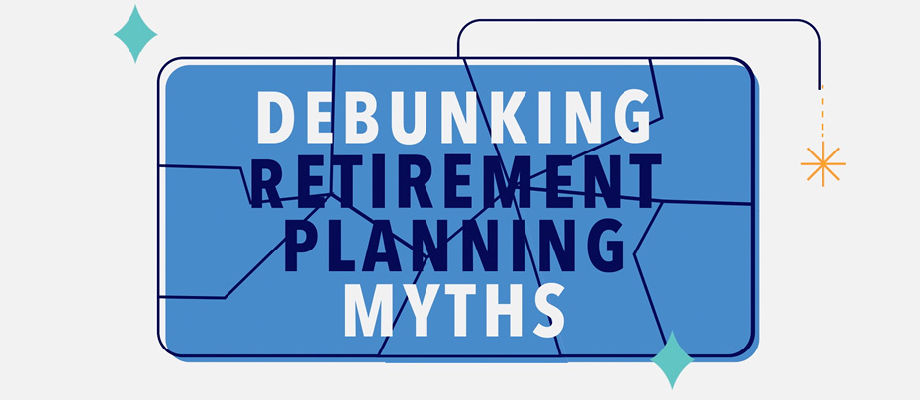We should all have a plan to make sure we’re financially prepared for a long, healthy, happy retirement. But oftentimes, we’re hesitant to jump into retirement planning and making financial decisions that could impact our future well-being. It can be thought of as a challenging process — especially when there are several factors to consider. “How much money do I need to retire?” “What will my spending habits look like?” “How do I ensure my money will last as long as I do?” These concerns are certainly understandable, but could there be other reasons you’re feeling apprehensive?
To find out why Americans don’t always act in their best interests when planning for retirement, a resent research by experts on consumer investment behavior from the UCLA Anderson School of Management. According to the research, many of us have biases that create roadblocks to investing and financial planning — behaviors many of us don’t even realize we have. Here are four common biases to be aware of as you plan and dream for your ideal retirement and how to get on a path toward making smarter financial decisions.
We favor the simple solution.
When participants in a research study were asked to choose between two life-cycle funds with different levels of risk — one described in easy-to-understand language, the other in complex terms — the results were striking. The simply described funds were the preferred choice, regardless of the risk factor.
We’re unrealistically optimistic.
Research shows that most people think they’re better-than-average drivers. Of course, not everyone can be above average! Optimism is great, but too much can cloud your judgment, especially regarding planning your financial future. People often underestimate the chance of bad things happening to them, such as major health care costs or losing a spouse.
We base decisions on recent and highly publicized events.
When asked which is deadlier, a shark or a cow, many people say shark. While shark attacks get more headlines, people are killed more frequently by cows each year than by sharks. People generally focus on top-of-mind events — whether that means a shark attack or a hot stock market. So they often base investment decisions on recent market performance, even though the recent past may not be a good indicator of the future.
We choose immediate gratification over future preparedness.
When it comes to financial decisions, given the choice between an earlier payoff to a larger, later one, most people choose the instant reward. The desire for immediate gratification can lead people to avoid sacrifices that could pay larger dividends in the future. For example, they may save less for retirement to hold on to more of their paychecks, even if it means forgoing free money offered by their employer from a 401(k) match.
A financial professional can provide an objective viewpoint to help you make smart financial choices and develop a plan for your retirement by:
- Clarifying your investment options in simple terms to help you choose wisely.
- Providing product solutions that can help financially protect you from life’s unexpected twists and turns.
- Balancing your retirement strategy consistent with long-term market trends — helping protect you from unpredictable short-term market downturns.
- Planning a smart retirement strategy considering all of your options — such as your employer 401(k) match, IRAs and annuities.
The better you understand your own biases and personal approach to financial decision-making, the more informed and confident you can be in planning for the future. This knowledge can also help you be more proactive in removing potential hurdles that may stand in the way of creating a secure and satisfying retirement.
Want the most from your retirement? Get smarter with Retirement Strategies from Basta Executive Services, LLC. Your source for tips, tools and financial solutions that can help you live your best life. Contact us today.
This material has been prepared for informational purposes only, and is not intended to provide, and should not be relied on for, tax, legal or accounting advice. You should consult your own tax, legal and accounting advisors before engaging in any transaction.
This article made possible by Athene. © Athene. All Rights Reserved. Edited for content.



